The Primary Care Training Hub work with a range of online training providers and have compiled the below to signpost you to virtual training and learning opportunities. Please continue to check this page as new resources and tools will be added and updated regularly.
 Medtribe - Booking Training Flowchart
Medtribe - Booking Training Flowchart
The Primary Care Training Hub advertise training opportunities through various channels, inlcuding listing events to book via Medtribe. Medtribe is an online platform and networking system that has been designed specifically for healthcare professionals to aid their personal development.
All training courses will be available to book on to via Medtribe, with each course having it's own booking link to access the tickets.
For guidance on how to use Medtribe and successfully a book a place on training, please view the booking training flowchart here.
 e-Learning for Healthcare
e-Learning for Healthcare
Health Education England work with e-Learning for Healthcare (e-LfH) to provide free online resources to support practitioners and NHS workers to develop in and beyond their current role.
If you do not already have an account, click here to register using your NHS email address. If you already have an account, please use the same link to firstly log in to access the following resources.
The Primary Care Training Hub's recommended courses for primary care can be found here.
Using the search functionality, you will also be able to find a range of role specific courses covering areas such as Hypertension, Nutrition and Obesity, A day in the life of a Podiatrist, Social prescribing – learning for link workers, Paediatric Skills and many more.
 NHS Learning Hub
NHS Learning Hub
The Learning Hub is a digital platform that provides easy access to a wide range of education and training resources for the health and care workforce.
In the Learning Hub, users can contribute digital resources (including e-learning, video, audio, images, documents, web links and articles) and search and access the variety of learning resources that have been contributed by organisations and the health and care workforce. Resources on the Learning Hub are not reviewed or endorsed by Health Education England.
Useful resources for primary care colleagues include but are not limited to Primary Care SMI Physical Health Checks, Primary Care Intelligence Demand Project and Patient Safety Resources.
This list is not exhaustive and the programmes available are regularly added and updated, so we recommend visiting the Learning Hub homepage, and using the search function to find resources that may be relevant to your development and your role.
 Virtual and Hybrid Learning Faculty
Virtual and Hybrid Learning Faculty
The National Technology Enhanced Learning team have developed a Virtual and Hybrid Learning Faculty (VHLF) to support every educator and those involved in the education community regardless of their current ability and experience. It has been designed to enable the community to be self-serving and self-determined, allowing educators to choose the learning which best meets their needs and the needs of their learners.
The faculty is hosted on the HEE TEL’s Learning Hub, a digital platform enabling the health and care workforce to access and share a wide variety of learning resources. To access the Learning Hub, you can sign in either using an e-Learning for Healthcare (e-LFH) username and password, or NHS OpenAthens user account details, or by creating a new account on the Learning Hub itself.
The VHLF is categorised into three main catalogues:
1. Getting started- technical support- covering a range of virtual and hybrid learning platforms, tools, products and apps.
2. Increasing your impact- on-demand resources- a family of resources (guides, templates, key considerations, checklists and how-to-videos) and a selection of best practice principles.
3. New- Community of Practice (COP)- where educators can network, share best practices and offer each other peer to peer support. A dedicated MS Teams channel has been set up for the VHLF/COP.
To sign up to the Community of Practice, please register your interest by completing this form.
The Community of Practice (COP) Members have access to various CPD sessions and masterclasses, and our offering to support this community and its members continues as we launch a new series of masterclasses.
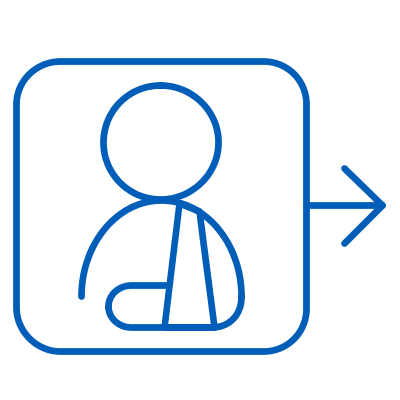 Working with People and Communities to Improve Health Outcomes: Short Course
Working with People and Communities to Improve Health Outcomes: Short Course
NHS England has launched a new short course on working with people and communities, which is open to any one working directly with people in the NHS and social care - including clinicians, receptionists and clinical students.
The course lasts for two weeks and looks at why it’s important to work with people and communities, how teams can successfully involve marginalised communities, and some of the challenges that health and care professionals can face and how they can be overcome. It explores how to create better health outcomes through working with people and supports attendees to think about what it means to be really heard – and what difference that can make.
To check the eligiblity criteria, please click here.
Find out more about how to join the course here.
 Supporting Staff to Help Money Go Further
Supporting Staff to Help Money Go Further
NHS England’s recognition and reward team have launched a dedicated online hub on Future NHS to provide a space where employers can share ideas and collaborate. It brings together information, ideas and key links, as well as examples of what is already being done locally. The hub includes a template guide which an employer can use to develop their local support offer for staff.
Please note, a Future NHS account is required to access this information.
If you have any resources or good practice examples to share, please email them to england.nhsreward@nhs.net
 Nursing Roles e-Learning for Healthcare
Nursing Roles e-Learning for Healthcare
The Primary Care Training hub have created a list of courses that you may find suitable if If you are currently in a nursing role and looking for e-Learning resources. Please click here to view the full list of courses.
This list is not exhaustive and the programmes available are regularly updated, so we recommend visiting the e-LfH portal and reviewing the available resources via using the “View full catalogue” function, or the “Search the e-learning" function.
 Nursing Training Resource Document
Nursing Training Resource Document
The Primary Care Training Hub have collated a list of all available e-learning courses to the nursing workforce in primary care. These courses include resources from e-Learning for Health, The Learning and Development Hub, NHS Elect and ESR. This list will be reviewed and updated every 3 months so we recommend to regularly check this document for newly added courses.
Please click here to view the Nursing Training Resource Document.
 Administration and Clerical Training Resource Document
Administration and Clerical Training Resource Document
The Primary Care Training Hub have collated a list of all available e-learning courses to the administration and clerical workforce in primary care. These courses include resources from e-Learning for Health, The Learning and Development Hub, NHS Elect, ESR, Personalised Care Institute and NEYLA. This list will be reviewed and updated every 3 months so we recommend to regularly check this document for newly added courses.
Please click here to view the Administration and Clerical Training Resource Document.
Management Training Resource Document
The Primary Care Training Hub have collated a list of all available e-learning courses to the management workforce in primary care. These courses include resources from e-Learning for Health, The Learning and Development Hub, NHS Elect, ESR and NEYLA. This list will be reviewed and updated every 3 months so we recommend to regularly check this document for newly added courses.
Please click here to view the Management Training Resource Document.
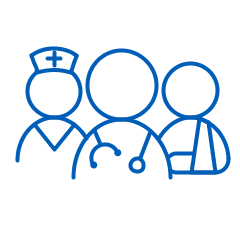 Primary Care and General Practice Nursing Career and Core Capabilities Framework
Primary Care and General Practice Nursing Career and Core Capabilities Framework
This recent framework, published by Skills for Health, provides a standard and greater clarity on the scope of practice for nurses working within primary care and general practice settings. As more care is being managed and delivered in the primary care setting, there are opportunities for a wider range of nursing knowledge, skills and attributes including nursing associate, mental health, learning disabilities and children’s nursing.
The structure of the framework consists of two components: Career Framework – this provides a summary of 6 career levels for nursing within primary care/general practice and Core Capabilities Framework – this details the knowledge, skills and behaviours at different levels practice.
To access the Core Capabilities Framework, please click here.
For further information, please click here.
 Learning Resources for Pharmacy Roles
Learning Resources for Pharmacy Roles
The School of Pharmacy have worked with Health Education England to create a North School of Pharmacy and Medicines Optimisation learning resources document, specific to pharmacy roles and the Pharmacy Learning Needs Analysis (LNA). The key aim of a LNA is to help you plan the skills, education and training support needs for you and/or your workforce. You can use your LNA to inform local planning process and this should help you review these needs along with your organisational procedures.
Please click here to view the North School of Pharmacy and Medicines Optimisation document.
If you have any further queries regarding LNA, please contact medicinesoptimisation.north@hee.nhs.uk.
 Advanced Pharmacist Handbook
Advanced Pharmacist Handbook
The North School of Pharmacy and Medicines Optimisation have created an Advanced Pharmacist Handbook to support navigation of the routes to and through advanced practice by describing pathways for all sectors of pharmacy. This is demonstrated using the Health Education England (HEE) Multi-professional Framework for Advanced Clinical Practice in England and the Royal Pharmaceutical Society’s (RPS) Advanced Pharmacy Framework.
This handbook is a resource for pharmacists, employers and pharmacy leaders from all sectors and those outside the pharmacy profession. It will help your understanding of how to develop advanced practice to improve patient outcomes and service delivery alongside how to seek or provide support.
To view the Advanced Pharmacist Handbook, please click here.
For any further queries, please email advancedpractice.ne@hee.nhs.uk
 Pharmacy First Service
Pharmacy First Service
The Pharmacy First Service is now live, enabling community pharmacists to complete episodes of care for patients for seven common conditions, without the need for the patient to visit their general practice.
FAQs about the service and clinical pathway explainer videos can be accessed via Community Pharmacy England here.
 Medicines in Compliance Aids – Specialist Pharmacy Service, The First Stop for Professional Medicines Advice
Medicines in Compliance Aids – Specialist Pharmacy Service, The First Stop for Professional Medicines Advice
The NHS Specialist Pharmacy Service (SPS) understands the need to for high quality information that is readily accessible. This is why they are developing a new way of presenting stability information for medicines in compliance aids.
You can help inform this development work by sending the SPS team your local processes or procedures (SOPs) for dispensing compliance aids/dosette boxes/Nomad trays, etc. SPS also want to hear your ideas about how they can make this information resource work for you.
To get involved, please contact the team by emailing he.llo@sps.direct
 GP Administration Roles e-Learning for Healthcare
GP Administration Roles e-Learning for Healthcare
The Primary Care Training hub have created a list of courses that you may find suitable if If you are currently in a GP administration role and looking for e-Learning resources. Please click here to view the full list of courses.
This list is not exhaustive and the programmes available are regularly updated, so we recommend visiting the e-LfH portal and reviewing the available resources via using the “View full catalogue” function, or the “Search the e-learning" function.
Developed in partnership with the Practice Managers Association, e-LFH have added the following new modules for administration staff, aiming to support an inclusive approach to managing demand and workload:
 Recognising the importance of good communication
Recognising the importance of good communication
 Spotting and responding promptly to red flags using both existing and COVID-19 specific protocols.
Spotting and responding promptly to red flags using both existing and COVID-19 specific protocols.
 Maintaining confidentiality and privacy within digital healthcare for patients and their carers and the importance of digital inclusion
Maintaining confidentiality and privacy within digital healthcare for patients and their carers and the importance of digital inclusion
 ARRS Roles e-Learning for Healthcare
ARRS Roles e-Learning for Healthcare
If you are searching for courses related to a particular new role in primary care (ARRS roles), please click here to access our New Roles Resource, navigate to your role, then select “Training and Development”. This will specify courses relevant to your role as well as any other training resources that you may find useful.
This list is not exhaustive and the programmes available are regularly updated, so we recommend visiting the e-LfH portal and reviewing the available resources via using the “View full catalogue” function, or the “Search the e-learning" function.
 STOMP Stakeholder Communication Toolkit
STOMP Stakeholder Communication Toolkit
Stakeholder Communication Toolkit: Stopping the Over-Medication of People with a Learning Disability and Autistic People e-Learning (STOMP)
STOMP is a national project involving many different organisations which are helping to stop the overuse of these medicines. To ensure people with a learning disability and autistic people are not taking psychotropic medicines when they do not need to, a collection of new sessions on stopping the overmedication of people with a learning disability and autistic people (STOMP) has been added to the MindEd.
Developed by MindEd with Experts by Experience, Health Education England and NHS England and NHS Improvement, the STOMP programme features 5 knowledge based e-learning sessions and 1 skill building case study which covers various topics. For more information and to access the sessions, please click here.
If you have any further queries, please email learning.disability@hee.nhs.uk
 Work and Health Programme
Work and Health Programme
This e-learning course is in partnership with Public Health England, Department of Health and Social Care and Department for Work and Pensions. This course is about the crucial relationship between work and health and is intended to improve healthcare practitioners’ confidence to support patients with long term or chronic health conditions, via brief conversations in routine consultations and focusing on the relationship between healthcare professionals and patients. Specialists, GPs, nurses, occupational health experts and other rehabilitation physicians all have their part to play, which is why this course is pitched at a general level of knowledge and practice.
To complete the programme, you have the option to do the whole course, or simply complete the Introduction and Self-care for Health Professionals sessions plus 1 other session of your choice from the supplementary sessions. A certificate will be generated on completion of the Core Sessions module, plus a certificate is available on completion of each supplementary session. Each session lasts approximately 30-40 mins.
Please click here to access the course or here for further information.
Making Every Contact Count (MECC)
The Making Every Contact Count (MECC) approach encourages health and social care staff to use the opportunities arising during their routine interactions with patients to have conversations about how they might make positive improvements to their health or wellbeing.
The MECC e-learning programme is designed to support learners in developing an understanding of public health and the factors that impact on a person’s health and wellbeing. It focuses on how asking questions and listening effectively to people is a vital role for us all.
The MECC Toolkit contains a library of national and local resources that can be used to support the development, implementation and evaluation of MECC programmes across local communities. This includes details of how to join a MECC Community of Practice and covers topics around making changes, such as stopping smoking, improving diet, increasing physical activity, losing weight and reducing alcohol consumption.
To access the e-learning programme, please click here.
To access the toolkit, please click here.
All Our Health
The All Our Health e-learning sessions have been developed to provide a bite-sized introduction to the wide range of topics covered within the All Our Health framework. Currently, there are 33 All Our Health e-learning sessions available covering a wide variety of public health topics.
All Our Health supports system wide priorities on prevention, including those within the NHS Long Term Plan, by providing support and practical guidance for all health and care professionals on how to embed prevention within their work, helping to reduce health inequalities, premature morbidity and mortality. Within these sessions, you’ll find signposting to trusted sources of helpful evidence, guidance and support.
There are a wide range of other All Our Health topics which will be created into elearning sessions and released as they are developed. To view the full range of All Our Health topics, please click here.
To access the All Our Health e-learning sessions, please click here.
NHS Health Check Training Hub
These learning resources support the delivery of the NHS Health Check and complement locally commissioned NHS Health Check training. Learners may be required to set up a free account to access some of the external resources. Topics include: blood pressure, cholesterol, physical activity, alcohol, smoking, behavior change, dementia, information on cardiovascular disease prevention and the NHS Health Check programme.
To access the hub, please click here.
 Decision Support Tools: Published
Decision Support Tools: Published
NHS England have published a suite of eight decision support tools covering varying conditions along with guidance on how to use them and evaluating the impact. Decision support tools (DSTs), also called patient decision aids support shared decision making (SDM) by making treatment, care and support options explicit, providing evidence-based information about the associated benefits and risks, and helping patients to consider what matters most to them in relation to the possible outcomes, including doing nothing.
These DSTs have been developed in accordance with NICE standards framework for shared decision making support tools, including patient decision aids. NHS England will continue to build on this suite of DSTs and publish as they become available.
To access the decision support tools (DSTs), please click here.
For guidance on how to use a DSTs, please click here.
Further Decision Support Tools Published
NHS England has published a further decision support tools to the already existing eleven to cover: inguinal hernia, enlarged prostate, gallstones, varicose veins, managing heavy periods, abdominal aortic aneurysm (AAA), angina, depression, glue ear in children and chronic pain management.
These DSTs have been developed in accordance with NICE standards framework for shared decision making support tools, including patient decision aids. NHS England will continue to build on this suite of DSTs and publish as they become available.
To access the further decision support tools, please click here.
Decision Support Tools – Easy Read Versions Now Available
NHS England has published six Easy Read decision support tools covering inguinal hernia, enlarged prostate, gallstones, varicose veins, managing heavy periods and Type 1 Diabetes.
To access the Easy Read versions, please click here.
 Online Eating Disorder Training for Primary Care Clinicians
Online Eating Disorder Training for Primary Care Clinicians
Eating disorders are common and can be extremely serious. Early identification and support are key to better outcomes and primary care staff have a key role to play. Health Education England has therefore worked in partnership with experts by experience, NHS England and the charity Beat to launch online all-ages eating disorder learning for primary care staff, comprising of two sessions that take approximately 30-40 minutes to complete and includes a video role-play demonstration.
To acess GPs and Primary Care: Understanding Eating Disorders Training and for more information, please click here.
 MindEd Online Eating Disorder Learning
MindEd Online Eating Disorder Learning
To support professionals across settings in understanding and supporting people of all ages with an eating disorder, we have worked in partnership with MindEd and NHS England to develop the MindEd Feeding and Eating Disorder Hub.
The MindEd Feeding and Eating Disorder Hub features two new topics:
- An Adult Eating Disorders Hub aimed at universal to specialist professionals, working with adults across health and care settings, higher education, charities and criminal justice settings. In this Hub, you can find key trusted evidence-based learning curated and approved by MindEd’s expert panel.
- The Tips for Children and Young People’s Feeding and Eating Disorders aimed at professionals working across health and care settings.
To view the MindEd webiste, please click here. For additional mental health and eating disorders learning, please click here.
For further information, visit the webiste or contact mindedenquiries@hee.nhs.uk.
 Eating Disorder e-Learning for Dietitians, Oral Health and Community Pharmacy Teams
Eating Disorder e-Learning for Dietitians, Oral Health and Community Pharmacy Teams
This series of training programmes 'Understanding Eating Disorders Webinar Resource for Dietitians, Oral Health Teams and Community Pharmacy Teams' were developed in response to the 2017 PHSO investigation into avoidable deaths from eating disorders as outlined in recommendations from the report titled Ignoring the Alarms: How NHS Eating Disorder Services Are Failing Patients (PHSO, 2017).
It is designed to ensure that healthcare staff are trained to understand, identify and respond appropriately when faced with a patient with a possible eating disorder.
To access the e-Learning, please click here.
To view the Communication Toolkit, please click here.
 New Fit Note
New Fit Note
From 1st July, new legislation comes into force which allows nurses, occupational therapists, pharmacists, and physiotherapists to legally certify fit notes, in addition to doctors.
To support this, the government has published guidance to help individuals and employers identify the knowledge, skills and experience required to certify fit notes. A new training course is available and should be completed before taking up this task - this is freely accessible for all healthcare professionals, including doctors. It is recommended that colleagues also complete the Work for Health Programme first which provides a general introduction to this area. GP IT systems are expected to be updated by the start of September, however GPs should check with individual suppliers as they are operating on different timescales.
To access the training course, please click here.
To access the Work for Health Programme, please click here.
 Physical Activity for the Prevention and Management of Long-Term Conditions
Physical Activity for the Prevention and Management of Long-Term Conditions
Expert Physical Activity Clinical Champtions are delivering free, peer to peer, 1-3 hour online training sessions to groups of healthcare professionals at a date and time to suit local needs.
Attending this free online training provides the opportunity to:
 Access evidence based resources proven to increase knowledge and confidence, and support clinical practice in line with guidance (e.g. NICE)
Access evidence based resources proven to increase knowledge and confidence, and support clinical practice in line with guidance (e.g. NICE)
 Improve management and care of patients with 30+ long-term conditions (e.g. CVD, type 2 diabetes, depression, MSK issues, some cancers)
Improve management and care of patients with 30+ long-term conditions (e.g. CVD, type 2 diabetes, depression, MSK issues, some cancers)
 Help reduce service demand and costs i.e. the ~£0.9bn annual cost to the NHS associated with insufficient physical activity
Help reduce service demand and costs i.e. the ~£0.9bn annual cost to the NHS associated with insufficient physical activity
Please click here to view the flyer.
To book a 1+ hour online session for 12+ healthcare professionals, email physicalactivity@phe.gov.uk who will help connect you with your local Physical Activity Clinical Champion.
 Equality and Diversity e-Learning
Equality and Diversity e-Learning
This course provides you with learning materials to support the development of the knowledge, skills and behaviours required for Standard 4: Equality and Diversity. Please note that the e-learning session in this course is also part of statutory and mandatory training. If you have completed it before starting your learning for the Care Certificate, please advise your assessor.
To access Standard 4: Equality and Diversity e-learning course, please click here.
 Administrative Triage Using Digital Tools e-Learning
Administrative Triage Using Digital Tools e-Learning
A new e-Learning module has been developed to support general practice administrative staff in sorting, signposting and delivering administrative triage using digital tools, with the aim of supporting an inclusive approach to managing demand and workload. The module has been developed in partnership with HEE e-Learning for Health and the Practice Managers Association. There are five sessions covering:
 introducing administrative triage
introducing administrative triage
 designing a practice workflow and setting up a triage list
designing a practice workflow and setting up a triage list
 promoting the service to patients
promoting the service to patients
 confidently taking patients, or their nominated carer, through an online consultation request over the telephone or in person
confidently taking patients, or their nominated carer, through an online consultation request over the telephone or in person
 sorting patient requests and signposting to the right place, service, or clinician for clinical triage.
sorting patient requests and signposting to the right place, service, or clinician for clinical triage.
Please click here to access Administrative Triage Using Digital Tools in General Practice e-Learning module.
 Handling Difficult Situations Training
Handling Difficult Situations Training
Following a successful pilot in 2021/22, we are pleased to announce that places are now available on our national training programme that aims to offer our patient facing NHS people the skills and techniques to handle difficult situations with compassion, including using appropriate communication techniques and active listening skills, whilst focussing on how to keep yourself safe and seek support if you feel affected by a situation. This training is open to those working across primary care in both clinical and non-clinical roles.
The training will be held virtually using MS Teams, and will take 3 hours. Colleagues will need permission from their line manager to attend the full session as they will not be able to leave part way through.
To sign up to attend the Handling Difficult Situations Training, please click here.
 Stroke Toolkit
Stroke Toolkit
The NHS Long Term Plan (2019) identifies stroke as a clinical priority. The creation of Integrated Stroke Delivery Networks (ISDNs) is crucial to this plan, providing an integrated 24/7 full-pathway approach; bringing people and organisations together to deliver the best possible care across the whole pathway, from prevention and urgent care to rehabilitation and long term support.
The National Stroke Programme and Getting It Right First Time (GIRFT) Stroke Programme have been working closely with RightCare to develop a Stroke Toolkit and assessment tool, to bring to life the NSSM, the subsequently published policy document Integrated Community Stroke Service (ICSS) Model, and the GIRFT National Stroke report 2022.
To view the Stroke Toolkit, please click here.
 New GP Practice Readiness Checklist
New GP Practice Readiness Checklist
To support GP Practices in offering patients access to their future health information, We recently wrote to general practice staff to detail the need to prepare for this change and the support available, including an updated RCGP GP Online Services toolkit, videos covering key topics, learning from early adopter sites and communication materials for general practice to use to inform their patients.
The GP Practice Readiness Checklist has been produced to help practices ensure they have completed all the necessary actions, such as staff training and reviewing of relevant policies and processes. All staff, including locums, should receive the necessary training with regards to checking and entering information into patient records and familiarise themselves with any change in business processes and GP system functionality.
To access the GP Practice Readiness Checklist, please click here.
To find out what the changes mean for you and what the next steps are, please access our upcoming awareness webinars here.
 Investment and Impact Fund (IIF) and Network Contract DES Indicators: SNOMED Codes Tool
Investment and Impact Fund (IIF) and Network Contract DES Indicators: SNOMED Codes Tool
NHS England has released the 22/23 Indicators and SNOMED Codes tool to support PCNs in meeting the requirements of the IIF and Network Contract DES indicators. The tool enables users to view the SNOMED codes associated with each indicator to ensure that PCNs can accurately code their activity. To use the tool, users select the relevant indicator ID, which loads a list of associated SNOMED codes and their descriptions. A user guide is provided on the first page of the tool. The tool currently only contains indicators collected via the GP Extraction Service (GPES).
To access the 22/23 Indicators and SNOMED Codes tool, please click here.
 New Online Eating Disorder Learning on Physical Health Assessments and Monitoring
New Online Eating Disorder Learning on Physical Health Assessments and Monitoring
To support teams involved in the physical health assessment and monitoring of people with an eating disorder, e-Learning for Health have worked in partnership with Health Education England and the charity Beat to launch a short online medical monitoring training in eating disorder learning.
This session aims to equip all healthcare staff who are involved in the physical assessment and monitoring of eating disorders with the knowledge and skills needed to sensitively undertake medical monitoring. It includes information on why physical health checks are necessary, the steps involved and appropriate communication style. This learning may apply to primary care teams, eating disorder teams or other teams who are monitoring the physical parameters of a person with an eating disorder, in line with national guidance.
To access the e-Learning for Health training, please click here.
To view the Eating Disorder Online Learning for Medical Monitoring: Communication Toolkit, please click here.
 Eating Disorders Training for Health and Care Staff
Eating Disorders Training for Health and Care Staff
A suite of learning has been and continues to be developed in response to the Parliamentary and Health Service Ombudsman (PHSO) investigation into avoidable deaths from eating disorders, as outlined in recommendations from the report titled Ignoring the Alarms: How NHS Eating Disorder Services Are Failing Patients (PHSO, 2017). All training has designed to ensure that health and care staff are trained to understand, identify and respond appropriately when faced with a patient with a possible eating disorder. It is the result of collaboration between eating disorder charity Beat, Health Education England, NHS England and key partners.
This new learning forms a wider suite of training that has been developed and tailored for specific staff groups supporting patients and service users with eating disorders. Current training available is for medical students, foundation doctors, nursing workforce and GP and Primary Care Clinicians on the e-Learning for Healthcare eating disorder programme webpage.
To access the e-Learning for Healthcare eating disorder programme webpage, please click here.
To view the Eating Disorder Online Learning for Medical Monitoring: Communication Toolkit, please click here.
If you have any further queries, please email mentalhealth@hee.nhs.uk
 The Eating Disorders Training for Health and Care Staff Programme - Reviewed and Updated
The Eating Disorders Training for Health and Care Staff Programme - Reviewed and Updated
The Eating Disorders Training for Health and Care Staff programme has recently been reviewed and updated, adding the 5 below sessions. The programme has been developed with HEE, the charity Beat and the Royal College of Psychiatrists. It aims to help healthcare professionals including medical students, foundation doctors, the nursing workforce and health visitors, feel confident in identifying and treating eating disorders in patients.These sessions now reflect up to date clinical guidelines and include changes based on user feedback such as more questions to increase interactivity and test knowledge gained. They also reflect the most recent International Classification of Diseases ICD-11 diagnostic categories, to ensure the learning is in line with current criteria for different disorders.
Medical Students and Foundation Doctors Programme:
 Signs, Symptoms and Causes
Signs, Symptoms and Causes
 Practical Requirements
Practical Requirements
Nursing Workforce Programme:
 Screening and Assessment
Screening and Assessment
 The Impact of Starvation
The Impact of Starvation
 Sensitive Communication
Sensitive Communication
For more information and to access many other training sessions, please visit the Eating Disorders Training for Health and Care Staff programme page.
 Asthma e-Learning Programme
Asthma e-Learning Programme
The adult sessions’ content has undergone some minor updates to align with current British Thoracic Society (BTS), Scottish Intercollegiate Guidelines Network (SIGN) and National Institute for Health and Care Excellence (NICE) guidelines and now includes content about inhalers and the environment. It is aimed at all healthcare professionals who are in contact with children or adults with asthma.
The new programme webpage for Children and Young People (CYP) with asthma, developed in partnership with NHS England and NHS Improvement, complements the training and capability outputs of the national CYP asthma bundle of care, and aims to help deliver on the aspiration that any professional, both health and non-healthcare, who may look after a child with asthma, is trained and skilled to do so.
The framework divides the competencies into 5 ‘tiers’ based on professionals’ involvement in the child’s life from tier 1 (which is aimed at non-healthcare professionals) through to tier 5 (which is aimed at specialist healthcare professionals caring for complex asthmatics). There are accredited e-learning courses for tiers 1 to 4, which have been aligned to the relevant competencies. Tiers 1, 2 and 3 are available free of charge. The programmes aim to improve the diagnosis and management of asthma as a long-term condition for children, young people and adults.
For more information and to access the New Children and Young People e-Programme, please click here.
To access the updated Adult Asthma e-Programme, please click here.
 RightCare Asthma and Pneumonia Toolkits
RightCare Asthma and Pneumonia Toolkits
RightCare produces a range of resources including data packs, toolkits and patient scenarios. They are developed in close collaboration with expert stakeholders such as national clinical leaders, service user and public representative groups, third sector organisations, and other key stakeholders such as the Getting It Right First Time programme (GIRFT) and NICE.
The Asthma and Pneumonia toolkits reflect the priorities in respiratory care including identification of risk factors, prevention, detection and diagnosis, medicines optimisation and reducing inappropriate secondary care admissions. They will support Respiratory Clinical Networks and clinical services to understand their priorities to improve patient care and outcomes.
To view the Asthma Toolkit, please click here.
To view the Pneumonia Toolkit, please click here.
 Appropriate Prescribing of Antipsychotic Medication in Dementia
Appropriate Prescribing of Antipsychotic Medication in Dementia
A new toolkit from London Clinical Network aims to aid good practice and to help reduce variation in prescribing antipsychotic medication for dementia across England. It complements guidance available at a regional level, and provides information to address uses, risks and alternatives to antipsychotic medication, risk reduction in antipsychotic prescribing, and support for local systems to deliver best practice in antipsychotic prescribing and de-prescribing where appropriate.
To view the toolkit, please click here.
To access the London Clinical Networks webpage, please click here.
 Skill Building in System Leadership to Collaborate Across Health and Care
Skill Building in System Leadership to Collaborate Across Health and Care
The Foundations in System Leadership; collaborating for health and care programme is now available for enrolment. The programme is delivered online and is free to access for colleagues working in health, care, local authorities, and voluntary sector partnerships, who have a desire to improve the way they collaborate across organisational, professional, and hierarchical boundaries to design and deliver better health outcomes for the communities they serve. The programme will run for 5 weeks, and study time is flexible.
To apply for this course, please click here.
If you have any further queries or would like to talk about your development needs, please email system.leadership@leadershipacademy.nhs.uk
 Greener Practice Trainee Forum
Greener Practice Trainee Forum
Greener Practice, the UK’s primary care sustainability network, has created a GP Trainee Forum to facilitate the exchange of knowledge and ideas on sustainable healthcare between GP Trainees. All are welcome, no prior knowledge of the area required to join. The forum will be established as a WhatsApp group, and may also host meetings on topics of interest.
To access the GP Trainee Forum, please click here.
 Case Studies: Flexible Working in Primary Care
Case Studies: Flexible Working in Primary Care
Six in-depth case studies of GP practices across England have been published by the Institute for Employment Studies (IES), showcasing several successful strategies to implement flexible working practices. The study explored how these practices approached the challenges of designing and implementing flexible work designs and job crafting to meet the increase in patient demands, ensuring that individual staff needs, and the wider practice, can be balanced.
To view the case studies, please click here.
 Physical Health Care Course for People with Severe Mental Illness
Physical Health Care Course for People with Severe Mental Illness
Maudsley Learning is running a free, national half-day online course as part of the strategy to improve physical health care outcomes in individuals with severe mental illness. This theory-focused and interactive course is aimed at clinical practitioners in primary care and will provide an overview of systemic barriers and how practical adaptions can be implemented to ensure the physical health needs of individuals with serious mental health illness are met.
The course covers how physical health monitoring brings better outcomes for service users with serious mental illness, and considers co-morbidities, whereby mental health problems among people with physical illnesses is costly for both out health system and wider society.
To book a ticket for the course, please click here.
 Guidance: Improving the Physical Health of People Living with Severe Mental Illness
Guidance: Improving the Physical Health of People Living with Severe Mental Illness
NHS England has published new guidance for Integrated Care Systems on improving the physical health of people living with severe mental illness (SMI). People living with SMI have a life expectancy that is 15-20 years shorter than the general population, largely due to preventable or treatable physical illnesses. This guidance outlines how services should work together to deliver annual physical health checks in a way that meets people’s needs.
To view the guidance, please click here.
 Training for Professionals Who Care for Children and Young People with Asthma
Training for Professionals Who Care for Children and Young People with Asthma
Training courses are now available for healthcare and non-healthcare professionals, including GPs and practice nurses, who care for children and young people with asthma. Currently, the UK has some of highest death rates in Europe for childhood asthma and outcomes are worse for those living in the most deprived areas. We are committed to improving outcomes for children and published the national bundle of care for children and young people with asthma to support asthma care.
The training is divided into 4 tiers – each describes the level of care a professional is expected to deliver. This training provides a clear structure for both health and non-healthcare professionals to understand what knowledge they need and where to access training.
To access all 4 tiers of the training, please click here.
 The Oliver McGowan Mandatory Training on Learning Disability and Autism Launch
The Oliver McGowan Mandatory Training on Learning Disability and Autism Launch
Following a long campaign led by Oliver McGowan’s mother Paula McGowan OBE, Health Education England and partners at the Department of Health and Social Care, NHS England and Skills for Care have launched The Oliver McGowan Mandatory Training on Learning Disability and Autism e-learning. Oliver’s death shone a light on the need for health and social care staff to have better training and aims to provide the health and care workforce with the right skills and knowledge to provide safe, compassionate and informed care to autistic people and people with a learning disability. This requirement is set out in the Health and Care Act 2022.
For more information on the The Oliver McGowan Mandatory Training on Learning Disability and Autism, please click here.
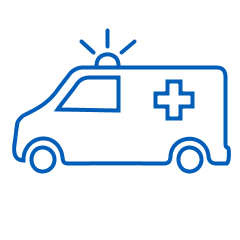 Paramedics in General Practice Guidance
Paramedics in General Practice Guidance
Working with Health Education England, NHS England have published guidance which describes the scope of practice of paramedics working in general practice. This document is aimed at general practices and ambulance services to improve understanding of the roles and responsibilities of general practice paramedics. It includes information on education/development needs, supervision requirements and the differences between enhanced, first contact and advanced levels of practice.
To view the guidance, please click here.
 New First Contact Practitioner Resources
New First Contact Practitioner Resources
First Contact Practitioners (FCPs) are a vital part of the wider primary care multi-disciplinary team. A new toolkit brings together the essential resources to support the development and integration of FCP roles into the wider system. The resource is divided into sections that cover all aspects of FCP roles from planning and implementing through to demonstrating effectiveness and impact. There are also sections looking at broader aspects of the role and wider policy implications, with links to all relevant resources.
To view the First Contact Practitioner Resource on Future NHS, please click here.
 Four New Patient Pathways for Core Rheumatology Conditions
Four New Patient Pathways for Core Rheumatology Conditions
The Getting It Right First Time (GIRFT) programme, which now incorporates Best MSK Health, has worked with a range of specialty stakeholders to develop and share four new pathways for core rheumatology conditions, supporting GPs and clinicians across the pathway to provide the best patient care and allowing patients and commissioners to see what they can expect from a service.
Pathways for inflammatory arthritis, Giant Cell Arteritis (GCA) and suspected GCA, connective tissue disease, and Axial Spondyloarthritis (axial SpA) are now available.
 New ‘Go To’ Page for GPs and Practice Teams - Evidence and Knowledge
New ‘Go To’ Page for GPs and Practice Teams - Evidence and Knowledge
NHS Knowledge and Library Services have pulled together useful information about all the products and services they offer specifically for GPs and practice teams onto one webpage. Content includes links to relevant e-books, journal articles, clinical decision support, guidelines and more. All the content is free to healthcare staff and learners.
Please click here to view the flyer.
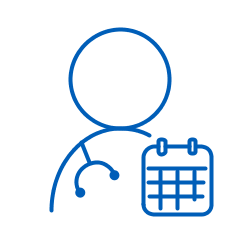 General Practice Assistant: e-Learning for Health Courses
General Practice Assistant: e-Learning for Health Courses
General Practice Assistants (GPAs) may also take external courses to build and evidence competencies – for example, the Care Certificate and phlebotomy training. There is guidance on developing and evidencing competencies, mentoring, and access to other supporting resources.
The Care Cerificate programme offers learning materials to support the development of knowledge, skills and behaviours required to achieve all 15 Standards of the Care Certificate.
To access the Care Certificate, please click here.
To access the GPA guidance, please click here.
 Workforce Development Framework: Social Prescribing Link Wokers
Workforce Development Framework: Social Prescribing Link Wokers
This new framework provided by NHS England provides guidance for people employed as a link worker and those employing them. It will help increase the understanding of the role and where link workers can have most impact in supporting and empowering people to improve their health and wellbeing. It also sets professional standards and competencies, gives guidance on supervision, training, and continuous professional development.
To view the framework, please click here.
 Social Prescribing Information Sheet for Local Carer Organisations
Social Prescribing Information Sheet for Local Carer Organisations
A new social prescribing short guide has been produced for anyone working at a local carer support organisation to explain what social prescribing is, how it can help unpaid carers, and how you can get involved in social prescribing projects. It has been co-designed by Carers Trust and Carers UK, local carer support organisations, the Department of Health and Social Care (DHSC) and NHS England.
To register and to find out more about the training, please click here.
 e-Learning Health Inequalities Programme
e-Learning Health Inequalities Programme
Core20Plus5
Core20PLUS5 is a national NHS England approach to support the reduction of health inequalities at both national and system level. The approach defines a target population cohort – the ‘Core20PLUS’ – and identifies ‘5’ focus clinical areas requiring accelerated improvement. The e-learning modules cover narrowing health inequalities in: hypertension, early cancer diagnosis, chronic respiratory disease, maternity and sever mental illness. The modules are aimed at anyone with a responsibility or interest in reducing health inequalities – especially those working to deliver services in the ‘5’ clinical priority areas.
Sickle Cell Disorder
The 1st session of the health inequalities programme to be launched focuses on sickle cell disorder, which is the name for a group of inherited red blood cell disorders. The most serious type is called sickle cell anaemia. This session, which will take approximately 30 minutes to complete, is an ideal resource for healthcare professionals looking for information and advice on how they can help to close the healthcare inequities gap among patients of sickle cell disorder.
Please click here to access both programmes.
 Free Training Resources for Nurses and Midwives
Free Training Resources for Nurses and Midwives
NHS Knowledge and Library Services has produced a quick reference guide for nurses and midwives, in the community and in GP practice teams. There is support for nurses right through their career, offering support to develop, stay up to date, make decisions and give patients the best care possible.
To view the quick reference guide, please click here.
 Core Managers: Developing Inclusive Workplaces Programme
Core Managers: Developing Inclusive Workplaces Programme
NHS Leadership Academy have designed this programme for health and care managers and supervisors to help them develop core inclusive leadership skills. It will support you as you develop essential leadership skills. The programme is comprised of a suite of short courses covering different themes of inclusive workplaces. This course is designed for health and care managers and supervisors. As the first in a series of training sessions on equality, diversity and inclusion in medical services, it will help you develop core inclusive leadership skills. The courses includes the following modules:
 Course 1: Inclusive Leadership in Health and Care
Course 1: Inclusive Leadership in Health and Care
 Course 2: Creating a Psychological Contract
Course 2: Creating a Psychological Contract
 Course 3: Noticing and Challenging Microaggressions
Course 3: Noticing and Challenging Microaggressions
For more information, please click here.
To apply for the programme, please click here.
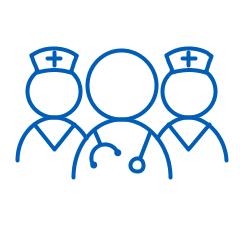 Lipids Management - New Resources Available
Lipids Management - New Resources Available
A series of new animations and leaflets are available to highlight the importance of managing cholesterol, and the steps that can be taken if cholesterol levels are high, have been created by Heart UK and the Academic Health Sciences Networks (AHSN).
The 2023/24 Quality Outcome Framework added two new cholesterol indicators, which particularly support high-risk CVD patients who could benefit from access to further combination therapies. Practices should be aware that at the point data is collected to assess QOF achievement patients will need to have a prescription for a statin/lipid lowering therapy on their records (CHOL001) and have a non-HDLC or LDLC reading at or below targets within the 12-month QOF Period (CHOL002).
The two organisations, working with NHS England, is supporting primary care in the prevention and management of cardiovascular disease through its national Lipid Management and Familial Hypercholesterolaemia (FH) programme of work.
An updated version of the ‘NICE endorsed AAC Summary of National Guidance for Lipid Management for Primary and Secondary Prevention of CVD’ was published in December 2022. Two additional pathways have also been added to provide clear and simple guidance for clinicians on how optimal lipid management may be achieved:
Please click here to view the Acute Cardiovascular Disease in Secondary Care pathway.
Please click here to view the Acute Cardiovascular Disease for Primary Care Clinicians.
 Courses and Learning Opportunities Focusing on Allergies
Courses and Learning Opportunities Focusing on Allergies
A range of allergy resources have been produced for primary care colleagues by the British Society for Allergy & Clinical Immunology (BSACI), to improve the management of allergies and related diseases of the immune system in the United Kingdom, through education, training & research.
Evidence-based information and courses for the understanding and management of anaphylaxis and serious allergy have also been created by Anaphylaxis UK. Free resources and CPD accredited learning opportunities for all healthcare professionals have also been developed by Allergy UK, the only national charity working on behalf of patients across the full allergy spectrum.
To access the resources, please click here.
To access the Allergy UK resources and CPD accredited learning, please click here.
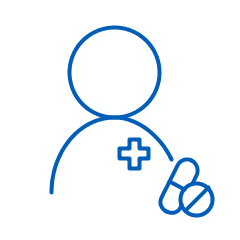 New Clinical Skills Training Offer for Community Pharmacists
New Clinical Skills Training Offer for Community Pharmacists
This exciting new training offer will give community pharmacists the opportunity to build on their existing clinical examination and consultation skills - to assess, treat and manage common health problems. Health Education England (HEE) is making available 10,000 module places which will be delivered until March 2024.
This offer is available to community pharmacists, including part-time staff and locums working in community pharmacy.
To register and find out more about the training, please click here.
 Supporting the Physical Health of People with Severe Mental Illness
Supporting the Physical Health of People with Severe Mental Illness
People living with severe mental illness often have poorer physical health than the general population. But poor outcomes are not inevitable. Physical health can be improved, and many early deaths avoided, if people receive the support they need.
The National Institute for Health and Care Research brings together recent examples of research in this area. It makes suggestions for primary care colleagues that could improve the physical health of people with severe mental illnesses. This includes personalised support, annual physical health checks and thinking about conditions that often cluster together.
Please click here to view the recent examples and research.
 National Primary Care Clinical Pathway for Constipation in Children
National Primary Care Clinical Pathway for Constipation in Children
NHS England presents a new national primary care clinical pathway for constipation in children guidance supports clinicians in the prevention and management of constipation in children and young people. The pathway provides a clear and standardised approach, based on guidelines from the National Institute for Health and Care Excellence (NICE), the British National Formulary for Children (BNFc) and clinical expert groups.
Resources are available for clinicians, families and other care providers which are easily accessible. The pathway also aims is to raise the profile of constipation in children and young people with a learning disability as a factor in adult mortality rates.
Please click here to access the pathway.
 Creating Community Conversations
Creating Community Conversations
NHS England are funding a small number of places on the online learning programme ‘Creating Community Conversations’ for anyone working in primary care, which gives colleagues the knowledge and practical resources to work alongside local people and communities. Registration is open to anybody who wants to help local people have their say in how services are designed and delivered.
To book your place on all modules, please follow the below links:
 Module 1 - Discover
Module 1 - Discover
 Module 2 - Embed
Module 2 - Embed
 Module 3 - Transform
Module 3 - Transform
 Module 4 - Unlock
Module 4 - Unlock
 Dermatology e-Learning Programme
Dermatology e-Learning Programme
This programme has been developed by the British Association of Dermatologists, and includes a range of interactive and engaging e-learning sessions, covering all areas of the Joint Royal Colleges of Physicians Training Board curriculum.
The e-learning sessions each take approximately 20 minutes to complete, so can be fitted around your busy working life. The programme is suitable for all healthcare professionals, including nurses, GPs, Physicians Associates and Trainees, and covers topics such as:
 Psoriasis
Psoriasis
 Atopic eczema
Atopic eczema
 Pigmentary Disorders
Pigmentary Disorders
 Skin Infections
Skin Infections
 Melanoma
Melanoma
 Skin Lymphoma
Skin Lymphoma
 Hair and Nail Disorders
Hair and Nail Disorders
 Inflammatory Dermatoses
Inflammatory Dermatoses
To access the course, please click here.
 Online Mental Health Learning to Support Pregnant Women and 24 months After Birth
Online Mental Health Learning to Support Pregnant Women and 24 months After Birth
NHS England in partnership with the Parent-Infant Foundation and clinical experts launched the online Perinatal and Infant Mental Health learning programme. This e-learning is open access and has been designed to upskill and increase awareness of perinatal mental health among professionals working in a range of settings supporting women during pregnancy and up to 24 months after birth, including maternity services, primary care, charities, and community groups.
To find out more about the Perinatal and Infant Mental Health learning programme, please click here.
To watch a short film on the programme, please click here.
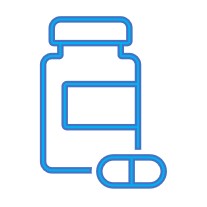 Community Pharmacy Training
Community Pharmacy Training
Community pharmacists can complete funded and flexible training to expand their clinical skills and improve patient care and NHS England funding will cover all course fees. Please see some of the available courses below:
 Clinical Examination Skills (including Cardiology, Paediatrics, Ear, Throat and Nose and Dermatology)
Clinical Examination Skills (including Cardiology, Paediatrics, Ear, Throat and Nose and Dermatology)
 Independent Prescribing
Independent Prescribing
For more information and to view the courses, please click here.
 Supporting People with Mental Health Through Social Prescribing
Supporting People with Mental Health Through Social Prescribing
Healthcare professionals are now able to access NHS England's newly updated e-learning course on 'Supporting People with their Mental Health Through Social Prescribing'. This session will provide knowledge, understanding and insight into mental health, and the wider determinants that influence an individual's vulnerabilities to experiencing mental illness, many of which fall into the type of needs that are identified and supported within social prescribing.
To view the course, please click here.
 Free Online NECS Courses
Free Online NECS Courses
NECS offer free, online courses in a range of topics to provide learning and development opportunities to primary care staff. Some of the available courses include:
 Excel
Excel
 SystmOne
SystmOne
 EMIS
EMIS
 Medical Terminology
Medical Terminology
 NECS Project Management
NECS Project Management
 Microsoft Teams
Microsoft Teams
 Report Writing Online
Report Writing Online
Please click here to visit the NECS website and view the availalbe courses.
 NHS Digital Weight Management Programme
NHS Digital Weight Management Programme
The NHS Digital Weight Management Programme is still available to all community pharmacies in England, to refer eligible patients into; those with a BMI > 30 and diagnosis of hypertension or diabetes, or both.
Please click here to access the NHS Digital Weight Management Programme Pharmacy Referral Site.
Please click here to view the NHS Digital Weight Management Programme Healthcare Professional Toolkit.
 Learning Disability and Aspiration Pneumonia RightCare Scenario
Learning Disability and Aspiration Pneumonia RightCare Scenario
Respiratory disease is one of the biggest causes of death for people with a learning disability in England but many of these deaths are avoidable. RightCare’s new scenario highlights optimal care and encourages commissioners and service leads to investigate key action areas that can lead to improvement for people with a learning disability who are at risk of developing, or have, aspiration pneumonia.
To view the scenarios, please click here.
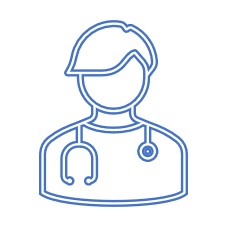 Care Navigation Resources
Care Navigation Resources
These Microsoft PowerPoint presentation slides have been taken from a previous Care Navigation Training Programme. The aim is for every practice and PCN in England to access care navigation skills training to drive transformation and improve patient access at first contact with the practice.
Please click here to view the slides.
To view the Care Navigation FAQs on FuturesNHS, please click here.
If you have any queries, please email: carenavigationtraining@england.nhs.uk
 e-Learning Module to Support Assessment and Prescribing for COVID-19 Treatments
e-Learning Module to Support Assessment and Prescribing for COVID-19 Treatments
An e-learning module on COVID antiviral treatments supports NHS clinicians, including GP teams and community pharmacists, in prescribing community-based COVID treatments. It will help build knowledge on prescribing the oral antiviral nirmatrelvir plus ritonavir (Paxlovid) which is recommended by NICE for highest risk patients. The module includes tools to support patient assessment and links to additional resources, including Specialist Pharmacy Service (SPS) COVID-19 medicines advice for primary care. Users need an e-learning for healthcare hub account, OpenAthens account or can register directly for access.
To access the module, please click here.
Please note, you will be required to create an account with NHS Learning Hub.
 New RightCare Scenario - Physical Health and Severe Mental Illness (SMI)
New RightCare Scenario - Physical Health and Severe Mental Illness (SMI)
People with severe mental illness are at a much greater risk of poor physical health and die on average 15 to 20 years younger than the general population. This new Physical Health and Severe Mental Illness scenario is part of a series of RightCare scenarios that support local health systems to think strategically about designing optimal care for people (and their carers) with high impact conditions.
To access the RightCare scenario, please click here.
 Training for Community Pharmacy Professionals
Training for Community Pharmacy Professionals
Community Pharmacists can complete flexible training to expand their clinical skills and improve patient care, fully funded by NHS England. Some of the courses include but are not limited to:
 Clinical Examination Skills
Clinical Examination Skills
 Independent Prescribing
Independent Prescribing
 Communication Toolkit for Employers
Communication Toolkit for Employers
Please click here to access the course list.
 Acute Inpatient Mental Health Care for Adults and Older Adults
Acute Inpatient Mental Health Care for Adults and Older Adults
Commissioners and providers of adult acute inpatient mental health services are urged to use this guidance to support the delivery of the ambitions for therapeutic acute inpatient care outlined in the NHS Mental Health Implementation Plan, and to support a sustainable approach to managing local system capacity. The guidance will also support future work on improving the quality of inpatient mental health care, led by the Quality Transformation Programme.
The guidance produced by NHS England covers purposeful admissions, delivery of therapeutic interventions and activities, and discharge planning, in a way that is personalised, trauma-informed and advances health equality. The recording of a webinar providing an overview of the guidance and some of the practical suggestions it contains can be accessed via FutureNHS platform.
To view the guidance, please click here.
 LeDer Resource Bank
LeDer Resource Bank
NHS England have gathered a range of good practice in supporting people with a learning disability and autistic people, so that clinicians and paid carers know how to make services better. We have developed a new bank of resources focusing on the main causes of early death. The LeDeR (learning from lives and deaths) resource bank will continue to grow with case studies and practical examples of how services can improve to meet people’s needs.
To view the resource bank, please click here.
 Campaign to Treat and Stop Constipation in People with a Learning Disability
Campaign to Treat and Stop Constipation in People with a Learning Disability
Constipation can be a life–threatening issue for people with a learning disability who are at heightened risk from complications if it is left untreated. NHS England have created the below resources that can be printed and used in home or care settings, facilitating conversations about constipation to lead to swift treatment and improved outcomes. These are available to support people with a learning disability, their carers, and people who work in primary care.
To access the resources, please click here.
 Digital Clinical Safety Training
Digital Clinical Safety Training
The digital clinical safety officer training is designed to provide an understanding of key clinical risk management processes, activities and documentation required in order to be compliant with DCB0129 and DCB0160 standards. It is only available to those who have a role that specifically encompasses GP IT.
Two funded courses include practitioner training and community of practice training, which is suitable for staff working within digital clinical safety and who have completed the practitioner course.
To access the trainings, please click here.
Please email: england.dpc.team@nhs.net for any further enquiries.
 NHS Cervical Screening Programme: 'Good Practice Guidance for Sample Takers’
NHS Cervical Screening Programme: 'Good Practice Guidance for Sample Takers’
The NHS Cervical Screening Programme Good Practice Guidance for Sample Takers supports cervical sample takers and enhances practice by providing key information in one place. It also promotes good practice that is consistent with national policy and programme guidance in key areas to help to mitigate risk around sample taking incidents. All cervical screening sample takers are encouraged to access and read the publication.
To view the guidance, please click here.
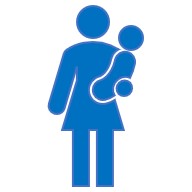 North East North Cumbria ICS PN 6-8 Week Maternal Health Resources
North East North Cumbria ICS PN 6-8 Week Maternal Health Resources
Please click on the links below to access the appropriate 6-8 week maternal health resources.
 NENC ICS Reproductive Health and Postnatal Maternal Health Check (6-8 week) Presentation Video:
NENC ICS Reproductive Health and Postnatal Maternal Health Check (6-8 week) Presentation Video:
 NENC ICS PN 6-8 Week Maternal Health Review Template
NENC ICS PN 6-8 Week Maternal Health Review Template
 NENC ICS PN 6-8 Week Maternal Health Pre-review Questionnaire (V1.1)
NENC ICS PN 6-8 Week Maternal Health Pre-review Questionnaire (V1.1)
 How To Guide Locating: NENC ICS PN 6-8 Week Maternal Health Review Template (V1.0)
How To Guide Locating: NENC ICS PN 6-8 Week Maternal Health Review Template (V1.0)
 ICS PHPiM Resource Pack for General Practitioners and Primary Care Network
ICS PHPiM Resource Pack for General Practitioners and Primary Care Network
 Newly Qualified Pharmacist Pathway
Newly Qualified Pharmacist Pathway
This year’s Newly Qualified Pharmacist pathway is open to more pharmacists than ever before. It is designed for learners across all sectors of pharmacy, to help them meet their development needs as they enter newly qualified practice. The pathway aims to link the initial education and training reforms to a continuum of post-registration development. It is intended to help pharmacists make the transition to more independent learning and acts as a stepping-stone towards enhanced and advanced practice. The pathway also uses learning outcomes to develop the skills and competence needed to prepare for a prescribing course.
To learn more and get started, visit the Newly Qualified Pharmacist web page.
 Pharmacy Regulations Guidance Published
Pharmacy Regulations Guidance Published
NHS England have published guidance on the National Health Service (Pharmaceutical and Local Pharmaceutical Services) (Amendment) Regulations 2023). The guidance includes detailed requirements, with which pharmacy contractors must comply.
These amendment regulations introduced changes to the Community Pharmacy Contractual Framework for pharmacy and dispensing appliance contractors.They came into force on the 25 May 2023, except for a new regulation for a business continuity plan dealing with temporary closures (suspensions), which took effect on 31 July 2023.
To view the guidance, please click here.
 Guidance on Joint Working Between NHS Talking Therapies and Community Mental Health Services
Guidance on Joint Working Between NHS Talking Therapies and Community Mental Health ServicesNHS England has developed new guidance to support improved joint working between NHS Talking Therapies for anxiety and depression and Community Mental Health (CMH) services. The guidance sets out the key barriers preventing seamless care between these services, provides clarity on national policy expectations for supporting people seeking help, as well as good practice guides and case examples to support improved care.
Developed with the aid of a working group made up of lived experience experts, clinical advisors, and staff from both NHS Talking Therapies for anxiety and depression and CMH teams, the document establishes four principles for improving seamless care between the two services:
 Improving appropriate referrals to services
Improving appropriate referrals to services
 Improving the ability for people to move between services where appropriate
Improving the ability for people to move between services where appropriate
 Increasing provision of evidence based psychological therapies for people with severe mental health problems and outcome monitoring within CMH services
Increasing provision of evidence based psychological therapies for people with severe mental health problems and outcome monitoring within CMH services
 Avoiding duplication of service provision across mental health pathways
Avoiding duplication of service provision across mental health pathways
To view the guidance, please click here.
 Green Light Toolkit
Green Light Toolkit
The National Development Team for Inclusion (NDTi) Green Light Toolkit is a guide to auditing and improving mental health services so that they are effective in supporting autistic people and people with a learning disability. The audit is a self- audit undertaken by providers.
A refresh of the Green Light Toolkit was commissioned in 2022 by the NHS England Autism Team as part of the NHS Long Term Plan commitment to improve care for autistic people. It is part of the NHS England resource pack to improve the sensory environment for autistic people.
To view the toolkit, please click here.
 National Guidance on Meeting the Needs of Autistic Adults in Mental Health Services
National Guidance on Meeting the Needs of Autistic Adults in Mental Health Services
National guidance on meeting the needs of autistic adults in mental health services has been published. It sets out 10 key principles and provides ICBs and system partners with advice on how to improve the quality, accessibility and acceptability of care and support for autistic adults to meet their mental health needs, both in the community and in inpatient settings. It provides practical examples of how the principles may be applied, to help inform thinking and facilitate discussion. The guidance encourages system partners to engage in strategic thinking about the inter-relationship between different services, to inform commissioning decisions.
This guidance compliments the recently published national guidance to support integrated care boards to commission acute mental health inpatient services for adults with a learning disability and autistic adults and is aimed at all mental health services.
To view the guidance, please click here.
 Supporting Retention of Mental Health Nurses
Supporting Retention of Mental Health Nurses
The NHS is experiencing a number of workforce challenges, with vacancy rates in mental health nursing especially high – as of Q4 of 2022/23 the nursing vacancy rate at mental health trusts was 18.1%.
As a result, NHS England is promoting resources to support the retention of mental health nurses:
 NHS England Retention Hub – This contains an overview of the different programmes available and links to resources, including a specific nursing and midwifery retention self-assessment tool and supporting toolkit, case studies and regional resources.
NHS England Retention Hub – This contains an overview of the different programmes available and links to resources, including a specific nursing and midwifery retention self-assessment tool and supporting toolkit, case studies and regional resources.
 Nursing and Midwifery retention FutureNHS workspace – This contains a series of masterclasses on various key topics within retention including legacy mentoring, pension, menopause, flexible working, preceptorship, and excellence in care. There are also details of People Promise Exemplar sites, key contacts of retention leads & retention managers for each region, and other related resources.
Nursing and Midwifery retention FutureNHS workspace – This contains a series of masterclasses on various key topics within retention including legacy mentoring, pension, menopause, flexible working, preceptorship, and excellence in care. There are also details of People Promise Exemplar sites, key contacts of retention leads & retention managers for each region, and other related resources.
 NHSE webpage for mental health nursing – This contains links to the Mental health nurse’s handbook, mental health nurses’ careers page and other resources.
NHSE webpage for mental health nursing – This contains links to the Mental health nurse’s handbook, mental health nurses’ careers page and other resources.
 Mental Health Nurses’ Forum – This is a communications resource and network for mental health nurses, facilitating mutual support and interaction, providing a space where mental health nurses can learn more about each other, their profession and what they contribute to patient care.
Mental Health Nurses’ Forum – This is a communications resource and network for mental health nurses, facilitating mutual support and interaction, providing a space where mental health nurses can learn more about each other, their profession and what they contribute to patient care.
 NHS IMPACT Initiative - Solving Together Platform
NHS IMPACT Initiative - Solving Together Platform
NHS England is excited to announce that this autumn the Children and Young People’s Mental Health (CYPMH) Team and NHS Transformation Directorate are launching an NHS IMPACT initiative with a set of crowdsourcing challenges on the Solving Together platform. Register now to add your ideas, comment, and share examples that others can learn from.
The challenges will bring together diverse perspectives from across the sector, including those with lived experience, to generate creative and innovative ideas and share learning from current good practice on how access and waiting times for CYPMH services could be improved. This will be the first Solving Together challenge to focus on mental health, giving us an opportunity to bring our sector together in a new way.
Join in on social media platforms, using #SolvingTogether and look out further updates.
If you have any queries, please email: England.cyp-mentalhealth@nhs.net
 National Suicide Prevention Kit
National Suicide Prevention Kit
NHS England has published a new national suicide prevention toolkit, designed to help organisations reduce the risk of suicide in their workforce. It suggests suicide prevention strategies in health and wellbeing policies and details an approach to supporting those at risk of suicide.
The toolkit follows the publication of DHSC’s National suicide prevention strategy.
To access the toolkit, please click here.
 General Practice' How To' Guides
General Practice' How To' Guides
New ‘how to’ guides have been published as part of the package of resources available through the General Practice Improvement Programme. They include quick wins and tips from practices who have adapted how they work, to improve patient access and reduce pressure on staff.
The guides covers:
 Better Align capacity with need
Better Align capacity with need
 Improve Care Navigation
Improve Care Navigation
 Improve telephony journeys
Improve telephony journeys
 Improve care-related processes
Improve care-related processes
Please click here to access the guides.
 NHS England Frameworks to Help Systems Reduce Health Inequalities
NHS England Frameworks to Help Systems Reduce Health Inequalities
NHS England has published two new frameworks to support work to reduce health inequalities:
 The Digital Inclusion Framework supports work to design and implement inclusive digital approaches and technologies.
The Digital Inclusion Framework supports work to design and implement inclusive digital approaches and technologies.
 The Inclusion Health Framework provides practical information to support NHS systems and their partners to take practical action on reducing health inequalities for inclusion health groups, such as people experiencing homelessness and Gypsy, Roma, and Traveller communities.
The Inclusion Health Framework provides practical information to support NHS systems and their partners to take practical action on reducing health inequalities for inclusion health groups, such as people experiencing homelessness and Gypsy, Roma, and Traveller communities.
 New Standards for Enhanced Epilepsy Services for Children and Youth
New Standards for Enhanced Epilepsy Services for Children and Youth
NHS England has developed new standards and recommendations for systems to consider in the delivery of epilepsy services for children and young people. The standards will support the delivery of consistent quality epilepsy care.
Key areas in the standards include: addressing variation of care, supporting the mental health and wellbeing of children and young people with epilepsy, improving referrals into tertiary care and the children’s epilepsy surgery service, and improving the transition from children’s services to adult services. The standards have been developed through working with key stakeholder organisations, as well as young people and their families.
To access the standards, please click here.
 General Practice Vaccination and Immunisation Services: Standards and Core Contractual Requirements
General Practice Vaccination and Immunisation Services: Standards and Core Contractual Requirements
NHS England has published general practice vaccination and immunisation services: standards and core contractual requirements, as set out in the Regulations and the previously issued 10 March 2021 NHS England letter.
To view the guidance, please click here.
 Shingles Vaccination Programme Technical Guidance
Shingles Vaccination Programme Technical Guidance
The technical guidance for the Shingles vaccination programme has been updated and republished. Practices should note that the Statement of Financial Entitlement has also been updated to include the new eligible cohorts for the Shingles programme.
To view the technical guidance, please click here.
 Proactive Care Framework for Heart Failure
Proactive Care Framework for Heart Failure
UCLPartners published a Proactive Care Framework for Heart Failure which has been developed to support the circa 600,000 people in the UK living with diagnosed heart failure. Diagnosis and treatment optimisation is often delayed in people with heart failure and it can feel challenging to manage in routine general practice.
The Framework supports primary care teams to embed proactive management of patients into routine clinical practice.
To view the framework, please click here.
To register for one of the upcoming webinars, please click here.
 New Resources for Occupational Therapists in Primary Care
New Resources for Occupational Therapists in Primary Care
The Royal College of Occupational Therapists has developed a range of resources to support occupational therapists and their employers, in primary care. These include capability frameworks, sample job descriptions and case studies.
To access the resources, please click here.
 Clinical Examination Skills for Community Pharmacists
Clinical Examination Skills for Community Pharmacists
Community pharmacists can sign up for one or more Clinical Examination Skills modules, including ENT, paediatrics, cardiology, and dermatology. Optional regional training days, offering the chance to practise new procedures and techniques in real-life scenarios, have received excellent feedback with more sessions being planned.
To access the CliniSkills website, please click here.
 Resources to Support NHS Line Managers
Resources to Support NHS Line Managers
New resources can help NHS colleagues identify the knowledge, skills and behaviours required to be a good people manager. Managers and people professionals are asked to use these resources to help make the NHS the best place to work.
To view 'The expectations of line managers in relation to people management' resource, please click here.
 ‘Handling Difficult Situations - Caring for Yourself and Others with Compassion’
‘Handling Difficult Situations - Caring for Yourself and Others with Compassion’
A final cohort of this free training programme is now live and open to all frontline, patient-facing NHS colleagues, delivered by NHS England. The training aims to introduce attendees to the skills and techniques that can be used to handle difficult situations, whilst maintaining a focus on how to keep yourself safe and well if you feel affected by a situation.
To register for the course, please click here.
If you have any queries, please contact: ournhspeople.hwb@nhs.net
 Updated Measles Guidelines and Resources
Updated Measles Guidelines and Resources
This year has seen a steady rise in measles cases. The UK Health Security Agency (UKHSA) has published updated national measles guidelines and resources, with a new slide set for healthcare professionals and support staff in primary care, including community pharmacy. These guidelines advise how to manage cases of suspected measles, what patient details to take, who to notify and assessing risk of disease spreading in close contacts.
To view the guidelines, please click here.
 Updated Guidance for Risk Assessment and Infection Prevention and Control Measures for Measles in Healthcare Settings
Updated Guidance for Risk Assessment and Infection Prevention and Control Measures for Measles in Healthcare Settings
This guidance is intended to support preparedness for and management of suspected or confirmed measles cases in healthcare settings. It sets out key infection prevention and control principles required to prevent transmission of measles and provides resources to support patient screening, triage, management, and assessment of risk applying the hierarchy of controls (HoC).
To view the guidance, please click here.
Further information and resources can be found within the National IPC Manual for England.
 Medical Retina Training Available
Medical Retina Training Available
Continuous professional development training for NHS Medical Retina is available for ophthalmic nurses, optometrists, orthoptists, ophthalmic technicians and photographers. Courses include non-medical intravitreal injection, optical coherence tomography capture and interpretation, enhanced and advanced ophthalmic imaging and institutionalised medical retina courses.
For further information and to book a place on these courses, please click here.
 Updated Enhanced Health in Care Homes Framework 2023
Updated Enhanced Health in Care Homes Framework 2023
NHS England has published a revised version of the Enhanced Health in Care Homes framework which sets out the principles for delivering proactive, personalised care for people living in care homes including those with learning disabilities or autism, mental ill-health or rehabilitation needs. This update reflects best practice and new ways of working since the COVID-19 pandemic, including the use of digital technology to improve integrated working and information sharing across health and social care teams.
To view the framework, please click here.
 Proactive Care: Providing Care and Support for People Living at Home with Moderate or Severe Frailty Guidance
Proactive Care: Providing Care and Support for People Living at Home with Moderate or Severe Frailty Guidance
NHS England has published guidance which supports a more consistent approach to proactive care across England, for people living at home with moderate or severe frailty. A proactive care approach aims to improve people’s health outcomes and their experiences of healthcare, by slowing the onset, or progression of frailty and enabling people to live independently for longer.
To access the guidance, please click here.
Cardiovascular Disease Toolkit
Aligned to the NHS Long Term Plan, online resources which provide an overview of CVD care across the entire patient pathway and promote better patient care were selected for a new Cardiovascular Disease Toolkit in the Cardiovascular Disease elearning programme. The Cardiovascular Disease (CVD) training guide aligns to the NHS Long Term Plan and provides learners with a comprehensive list of online resources to support workforce upskilling, training and development. This toolkit is a digital version of the multi-professional CVD training guide that offers consistent, credible and helpful resources relating to the prevention and management of the condition.
To access the toolkit, please click here.
 NICE Consultation on CVD Risk and Assessment: Published
NICE Consultation on CVD Risk and Assessment: Published
As a result, for the remainder of 2023/24, there will be a slight difference between NICE and QOF cholesterol targets. Complying with the QOF (CHOL002) targets will not carry a risk of over treatment. The slightly higher target levels chosen by NICE are based on considerations of cost-effectiveness, rather than clinical risk.
To view the consulation, please click here.
NHS England will consider any potential changes to future QOF arrangements as part of the usual annual review process. Contact england.gpcontracts@nhsengland.net with any queries.
 Makaton Training Available for Nurses
Makaton Training Available for Nurses
A new e-Learning resource for nurses to develop their understanding of Makaton and learn basic Makaton signs, has been added to the NHS Learning Hub. It has been developed by NHS England and The Makaton Charity and is available free of charge for all nursing staff.
The training provides information about the different ways in which people communicate, and how nurses need to consider these different options when caring for people. It also provides key techniques and tips to use as nurses to improve our communication skills and provides resources that will help us as nurses to learn skills to effectively provide care for people with different communication needs and styles.
By the end of the session, learners will know:
 How to better support patients who have communication difficulties
How to better support patients who have communication difficulties
 How Makaton uses speech, signs and symbols as a means of communication and how to apply it in the workplace
How Makaton uses speech, signs and symbols as a means of communication and how to apply it in the workplace
 Some basic vocabulary to start their Makaton journey
Some basic vocabulary to start their Makaton journey
 How to access further information, training and support through the Makaton website
How to access further information, training and support through the Makaton website
For more information, please visit the Makaton Training for Nurses webpage.
 The Provider Selection Regime: Statutory Guidance
The Provider Selection Regime: Statutory Guidance
The Provider Selection Regime (PSR) came into force on 1 January 2024. Relevant authorities (NHS England, ICBs, NHS trusts and NHS foundation trusts, and local authorities and combined authorities) must now apply the PSR when procuring healthcare services. Sections of the PSR statutory guidance have now been updated with changes highlighted on top of the webpage.
Providers can access additional resources and Frequently Asked Questions, learn more by joining a webinar, or by visiting the PSR website.
 Managing Type 1 Diabetes: Decision Support Tool
Managing Type 1 Diabetes: Decision Support Tool
NHS England has published the managing type 1 diabetes decision support tool to add to the sixteen covering cardiovascular, medical, ophthalmology, orthopaedics, surgery and women’s health medical procedures and conditions.
Decision support tools (DSTs), also called patient decision aids, support shared decision-making conversations. DSTs have been developed in accordance with NICE standards framework for shared decision-making support tools, including patient decision aids.
To view the decision support tool, please click here.
 Type 2 Diabetes: Support Resources
Type 2 Diabetes: Support Resources
Healthy Living is a free NHS online structured education programme designed to help patients learn more about and live well with type 2 diabetes. The easy-to-use programme includes information and advice about:
 Type 2 diabetes
Type 2 diabetes
 Eating well
Eating well
 Becoming more active
Becoming more active
 How to look after your body and mind
How to look after your body and mind
 Other NHS services and support
Other NHS services and support
 Living with diabetes, including driving, working and travelling
Living with diabetes, including driving, working and travelling
Health professionals can signpost patients to the programme via the Healthy Living website.
To order a free resource pack, please click here.
This campaign aims to raise awareness of the risk of type 2 diabetes and how to avoid it and encourages the public to check their risk via the Diabetes UK Know Your Risk tool. This toolkit containins social media assets, posters, leaflets, animations and more.
To view the toolkit, please click here.
 Delivery Plan for Recovering Access to Primary Care: Preparing for Pharmacy First (Funded Training for Community Pharmacy Technicians)
Delivery Plan for Recovering Access to Primary Care: Preparing for Pharmacy First (Funded Training for Community Pharmacy Technicians)
Courses are available for new community pharmacy technicians, those returning to learning, or those looking for professional development to deliver more services, to learn new skills, expand clinical knowledge, and support peer development.
 Advancing Your Role: builds on knowledge and skills, delivering effective clinical services.
Advancing Your Role: builds on knowledge and skills, delivering effective clinical services.
 Educational Supervisor Training: helps support, develop, and upskill community pharmacy staff to become an educational supervisor.
Educational Supervisor Training: helps support, develop, and upskill community pharmacy staff to become an educational supervisor.
For further information, please click here.
 Training: Get Ahead for Pharmacy First
Training: Get Ahead for Pharmacy First
Community pharmacists and pharmacy technicians can access a range of funded, flexible training to expand their clinical skills and improve patient care. Courses include:
 Clinical examination training skills
Clinical examination training skills
 Independent prescribing
Independent prescribing
 Pharmacy technicians: advancing your role
Pharmacy technicians: advancing your role
 Education supervisor training for pharmacists and pharmacy technicians
Education supervisor training for pharmacists and pharmacy technicians
To view the courses and for further information, please click here.
 Evidence Based Interventions Guidance - Release Four
Evidence Based Interventions Guidance - Release Four
The evidence-based interventions (EBI) programme aims to improve patient care by ensuring people get the most appropriate test, treatment, or procedure for them. The programme has now published its fourth guidance, adding three new urological recommendations to its existing list of 58 interventions. Clinicians and commissioners are asked to familiarise themselves with the guidance to help improve patient outcomes and reduce unwarranted variation in care.
Release four includes recommendations to:
 Maximise shared decision making between men aged 80 years or older and primary care clinicians in relation to the investigation and diagnosis of prostate cancer
Maximise shared decision making between men aged 80 years or older and primary care clinicians in relation to the investigation and diagnosis of prostate cancer
 Reduce variation in care experienced by women with recurrent urinary tract infections
Reduce variation in care experienced by women with recurrent urinary tract infections
 Improve how care is delivered to patients with bladder cancer, aiming to reduce recurrence.
Improve how care is delivered to patients with bladder cancer, aiming to reduce recurrence.
To view the guidance, please click here.
 Statutory Guidance – Discharge from Mental Health Inpatient Settings
Statutory Guidance – Discharge from Mental Health Inpatient Settings
New statutory guidance has been published by the Department for Health and Social Care, setting out best practice in relation to how NHS bodies and local authorities work together to support discharge from all mental health and learning disability and autism inpatient settings. In the annex of this guidance, there is additional guidance on how budgets and responsibilities should be shared to pay for section 117 aftercare (Mental Health Act 1983).
For information, the updated statutory guidance on hospital discharge and community support was also published on the same day.
To view the guidance, please click here.
 Training Course for Staff Working in NHS Talking Therapies Services
Training Course for Staff Working in NHS Talking Therapies Services
In response to the National AIDS Trust published report, NHS England, National AIDS Trust, and Viiv Healthcare have collaborated to provide this HIV-focused training for NHS Talking Therapies staff. The training, developed by a group of subject matter experts, including people living with HIV, explores HIV-related stigma; impact, adaptation, and adjustment to living with HIV; and considerations for NHS Talking Therapies assessment and interventions.
The training is free to access and available on the eLearning for Healthcare website. After completing the session, you can download a certificate to evidence continuing professional development, along with your own Welcoming Doors materials.
To view the course, please click here.
If you have any questions about the training, please contact the NHS Talking Therapies team at NHS England on: england.mentalhealth@nhs.net
 Patient and Carer Race Equality Framework (PCREF)
Patient and Carer Race Equality Framework (PCREF)
NHS England has launched its first ever anti-racism framework: the Patient and carer race equality framework (PCREF), for all NHS mental health trusts and mental health service providers to embed across England. This mandatory framework will support trusts and providers on their journeys to becoming actively anti-racist organisations by ensuring that they are responsible for co-producing and implementing concrete actions to reduce racial inequalities within their services. It will become part of Care Quality Commission (CQC) inspections.
To view the framework, please click here.
For further information, please click here.
 Reducing Health Inequalities - A Guide for NHS
Reducing Health Inequalities - A Guide for NHS
NHS Providers has published a new guide for NHS trust board members outlining their role in reducing health inequalities.
The guide outlines why trusts should act on health inequalities, includes a vision for what good looks like, a self-assessment tool for trusts to use to determine where they are in their journey and a list of suggested objectives for board members (divided by the different roles within NHS boards). The objectives are informed by NHS England policy and guidance documents relating to health inequalities and existing good practice within the sector.
To view the guide, please click here.
 New Integrated Neighbourhood Working Programme
New Integrated Neighbourhood Working Programme
The NHS Confederation has teamed up with Local Trust to promote and test community-led approaches to health and wellbeing in some of England’s most deprived neighbourhoods. Together they will broker practical partnerships between Local Trust’s Big Local areas, NHS partners and others with a stake in improving the health and wellbeing of people and places.
The Integrated Neighbourhood Working Programme will build a community of local leaders sharing learning and driving change, finding and sharing new evidence on the conditions for successful integrated approaches, and influencing and informing systemic changes to health and care at a national and system level.
To read the full story, please click here.
To sign up for updates about the programme, please click here.
 New ‘How to’ Guides to Support Modern General Practice
New ‘How to’ Guides to Support Modern General Practice
As part of the Delivery Plan for Recovering Access to Primary Care, NHS England has published four ‘how to’ guides to support general practice teams to:
 better align capacity with need
better align capacity with need
 improve care navigation
improve care navigation
 improve telephony journeys
improve telephony journeys
 improve care-related processes
improve care-related processes
The guides provide know-how and learning from practices and primary care networks (PCNs) across the country about tested new systems, processes and approaches that are helping the transformation to modern general practice. They complement the existing ‘creating highly usable and accessible GP website for patients’ guide and support practices and PCNs to adapt this shared knowledge to their local context and realise benefits more quickly and easily.
Please click on the links above to access the guides.
 Culture of Care Standards for Mental Health Inpatient Services
Culture of Care Standards for Mental Health Inpatient Services
The co-produced NHS England Culture of Care Standards for Mental Health Inpatient Services have now been published.
The standards describe a collective vision for mental health inpatient services through the application of 12 core commitments, and associated standards for each. They apply to all NHS-funded mental health inpatient services, including those for people with a learning disability and autistic people, as well as specialised mental health inpatient services such as mother and baby units, secure services, and children and young people’s mental health inpatient services. The application of the standards in inpatient services, from board to ward, is supported by the Culture of Care Programme delivered by our partners, the National Collaborating Centre for Mental Health.
To view the standards, please click here.
If you would like further information about the standards or the implementation programme please contact:england.mhldaqualitytransformation@nhs.net.
 Implementation Guidance: Psychological Therapies for Severe Mental Health Problems
Implementation Guidance: Psychological Therapies for Severe Mental Health Problems
NHS England published guidance to support mental health providers deliver the NHS long term plan objective to increase access to psychological therapies for people with severe mental health problems, as part of a wider transformation of adult and older adult community mental health services.
The guidance is aimed specifically at supporting the expansion of psychological therapies for people with severe mental health problems by upskilling and expanding the specialist psychological professions workforce. However, it is recognised that within community mental services there are many other professionals who deliver support and interventions as part of a multi-disciplinary team.
To view the guidance, please click here.
 Asthma Webinars for Primary Care
Asthma Webinars for Primary Care
The Child Health and Wellbeing Network (North East North Cumbria Healthier Together) have provided access to the following range of asthma webinars, free to access for primary care staff. To view the webinar, please click on the corresponding link below:
 CHWN Asthma Webinar 1: A Question of Paediatric Asthma
CHWN Asthma Webinar 1: A Question of Paediatric Asthma
 CHWN Asthma Webinar 2: Asthma in Practice
CHWN Asthma Webinar 2: Asthma in Practice
 CHWN Asthma Webinar 3: Hot Topics in Paediatric Asthma
CHWN Asthma Webinar 3: Hot Topics in Paediatric Asthma
 CHWN Asthma Webinar 3: Questions and Answers
CHWN Asthma Webinar 3: Questions and Answers
To view the final updated slides supporting document, please click here.
 Reasonable Adjustments Digital Flag Training
Reasonable Adjustments Digital Flag Training
NHS England will be showing how the NHS is helping people to live longer, happier healthier lives by supporting staff and the families of people with a learning disability to provide the right care and support. They have began to roll out the Reasonable Adjustments Digital Flag across the NHS and publicly funded care.
Please access the training to implement the Reasonable Adjustment Digital Flag, helping it to become part of a standard approach to care and treatment for all disabled people. You can also watch this informative film about what reasonable adjustments are and the type of reasonable adjustments people with a learning disability and autistic people might need.
To access the training, please click here.
 Behaviour Change Development Framework
Behaviour Change Development Framework
The Behaviour Change Development Framework and Toolkit can help you decide what sort of behaviour change training and planning is needed to effectively support people to make positive changes in their lives. The framework consists of an assessment to discover what level of behaviour change training you should be trained at, e-learning to help reach Behaviour Change Literacy (BCL) level, toolkits to access a range of tools and resources to help you develop and change behaviours and competency to discover learning and competencies that are required for each level of the Behaviour Change Development Framework.
To access the framework, please click here.
 e-Learning: How to Have Safe and Effective Wellbeing Conversations With Your Staff
e-Learning: How to Have Safe and Effective Wellbeing Conversations With Your Staff
Alongside NHS England’s national resources on how to have safe and effective wellbeing conversations, there is an e-learning module for line managers, which can be accessed via the NHS Learning Hub, or via Electronic Staff Record.
Aligned to the ambitions of the NHS People Plan and The Long-Term Workforce Plan, this course has been designed by NHS colleagues, to help people feel heard and valued, which will encourage colleagues to pass care and compassion on to each other, and to patients. We encourage you to complete the e-learning, and to hold regular wellbeing conversations with your colleagues.
Please click here to view the module on the NHS Learning Hub.
 Free Children and Young People Mental Health Training
Free Children and Young People Mental Health Training
Free Children and Young People Mental Health Certificated CPD: A new, completely free online CPD platform has been launched by the Association of Child and Adolescent Mental Health.
video and podcast content from more than 200 world-leading mental health experts on a range of topics, with ‘introductory’, ‘in practice’ and ‘in depth’ content suitable for people in a variety of roles and career stages. The site will be updated with new content every week.
You can explore it now at or read more on page 32 of the latest WPACAP e-journal.
 Tyneside Integrated Musculoskeletal Service (TIMS) Clinical Support Information
Tyneside Integrated Musculoskeletal Service (TIMS) Clinical Support Information
Musculoskeletal Service (TIMS) to provide direct access to TIMS professional resources through TeamNet Clinical Support Information without having to log into TIMS website as previous via GP TeamNet.
This resource includes:
- Red Flags
- GP Management
- Imaging
- TIMS Referrals
- Secondary Care Referrals
- Patient Information
Further information on the following topics can be found on the Clinical Support Information pages on GP TeamNet:
- Back Pain
- Elbow
- Foot and Ankle
- Hand and Wrist
- Hip
- Knee
- Shoulder Pain
- North ICP Clinical Support Information - Pathway Index
If you have any queries, please contact: sgpa.nicpcsi@nhs.net
 Partnership Working to Promote Digital Inclusion for Health
Partnership Working to Promote Digital Inclusion for Health
Good Things Foundation has launched a new report and toolkit on digital inclusion for health. It summarises research conducted with NHS England and other partners into the challenges and enablers for primary care and local authorities working together to promote digital inclusion.
The report presents new findings from the second phase of the research, including an updated maturity matrix. It also includes practical steps, case studies, and top tips to help primary care organisations and local authorities with digital inclusion.
Partnership working to promote digital inclusion for health: a toolkit for local authorities and primary care providers working together.